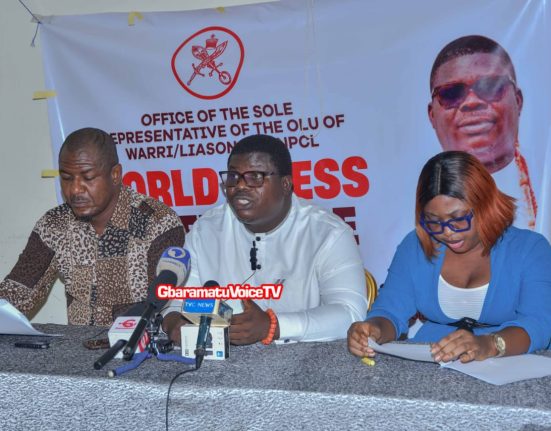Other aspects of the bill will be handled by joint c’ttee of both Houses – Saraki
With the passage of the Petroleum Industry Governance Bill (PIGB) by the House of Representatives on Wednesday, the Speaker of the House Hon. Yakubu Dogara Thursday urged President Muhammadu Buhari to, as a matter of urgency, sign into law the legislation passed by the National Assembly.
His appeal came on the heels of the passage of the legislation by the Senate last year.
The Speaker said the new legislation will be transmitted to the president within the next few days, explaining that the Eighth National Assembly had to move on and pass its own version of the bill, following the failure of the executive to present a draft bill to the National Assembly.
In a statement issued by his Special Adviser, Media and Public Affairs, Mr. Turaki Hassan, Dogara described the passage of the PIGB as a historic and landmark achievement by the Eighth National Assembly after it was first introduced to the parliament by late President Umaru Musa Yar’Adua in 2008.
Under the current National Assembly, the Petroleum Industry Bill (PIB), originally submitted by Yar’Adua, and a revised version which was submitted by his predecessor, former President Goodluck Jonathan, was broken up for ease of passage.
The PIGB, which has now been passed by the National Assembly deals strictly with the corporate and governance structures of the petroleum industry, especially as they relate to state-owned operators in the sector.
However, the aspect of the bill that deals with the fiscal and licensing regime for oil and gas players, as well as the host community fund, will be addressed in accompanying legislations.
Failure to legislate on a new fiscal regime for the sector over the years has remained a sticking point for oil multinationals, holding up billions of dollars in investment for the oil industry.
The Speaker said with the passage of the long-awaited bill, the petroleum industry will witness drastic improvement, attract investors and open up the sector as the Nigerian National Petroleum Corporation (NNPC) would be unbundled with the creation of other bodies.
He, however, noted that work will still continue on other aspects of the Petroleum Bill by the National Assembly, in accordance with the Eighth Assembly’s legislative agenda.
Just as Dogara spoke on the legislation, the President of the Senate, Dr. Bukola Saraki, said yesterday that the PIGB was awaiting the assent of the president, following its passage by the House.
Speaking during plenary Thursday, Saraki said the passage of the bill, which had been pending for about 10 years, was a great achievement for the Eighth National Assembly.
He congratulated the lawmakers for the feat, saying it was a historic milestone.
Saraki disclosed that the remaining two components of the Petroleum Industry Bill – the host community fund and fiscal bills would be handled by a joint committee of both legislative chambers to avoid the need for a conference committee for the harmonisation of the legislation.
“That will help to make sure that we are working with just one document and we are happy for that great development. The other two (components) will be passed,” he said.
Speaking further in a video posted on his Facebook page, Saraki said the passage of the PIGB and its assent into law would help to end the perennial fuel scarcity experienced in Nigeria.
The transcript from the video read: “Yesterday, after nearly two decades of back-and-forth, near-misses and ‘near-passages’, the Eighth National Assembly finally reached a milestone with the passage of the Petroleum Industry Governance Bill — otherwise known as PIGB. This is historic.
“Many of you will recall that in May 2017, the Senate took the first step in this direction, and yesterday, the House of Representatives did the same by passing this Bill that is aimed at modernising the Petroleum Industry and overhauling the entire system – to create a conducive business environment for petroleum industry operations.
“The PIGB will also promote openness and transparency in the industry, by clarifying the rules, processes, and procedures that govern the oil and gas sector. This should eliminate, or at worse, reduce corruption significantly and make the sector more efficient and more productive.
“Most important, with the ongoing fuel scarcity in many parts of the country, Nigerians should know that the PIGB, once it becomes law, will help alleviate those issues that lead to scarcity, such as the limited supply of Premium Motor Spirit (PMS), the poor import planning schedule that leads to fuel importation constraints, the corruption, diversion and smuggling — that lead to artificial scarcity, and the absence of deregulation in the sector.
“This bridge that we have just crossed, is a part of the commitment of the National Assembly to remain focused, committed, and determined to meet your expectations. Let me remind our people that this is another promise made and kept by the Eighth Assembly.
“With this feat, we have demonstrated that we have the will and capacity to deliver on our key promises aimed at rebuilding the national economy and improving the standards of living of our people.
“Many people did not give us any chance when we promised to pass the PIGB. Now, we have scaled this first major hurdle and we promise to pass the remaining related bills like the Petroleum Host Community Bill and Petroleum Industry Fiscal Bill very soon to complete the circle.”
Support Quality Journalism in the Niger Delta Region
Join us in our mission to bring development journalism, cultural preservation, and environmental awareness to the forefront. Your contribution makes a difference in the lives of the people of the Niger Delta. Donate today and be a part of the change!










Leave feedback about this
You must be logged in to post a comment.